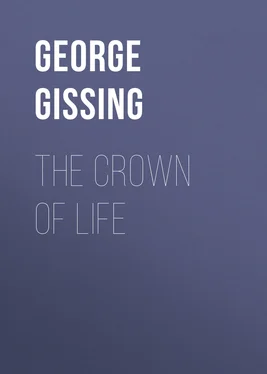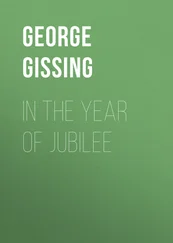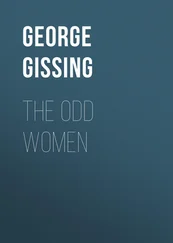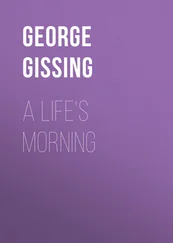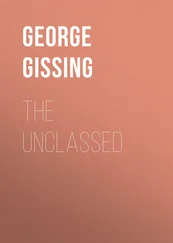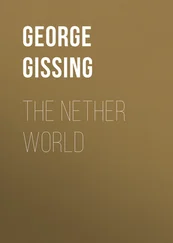George Gissing - The Crown of Life
Здесь есть возможность читать онлайн «George Gissing - The Crown of Life» — ознакомительный отрывок электронной книги совершенно бесплатно, а после прочтения отрывка купить полную версию. В некоторых случаях можно слушать аудио, скачать через торрент в формате fb2 и присутствует краткое содержание. Жанр: foreign_prose, literature_19, foreign_antique, на английском языке. Описание произведения, (предисловие) а так же отзывы посетителей доступны на портале библиотеки ЛибКат.
- Название:The Crown of Life
- Автор:
- Жанр:
- Год:неизвестен
- ISBN:нет данных
- Рейтинг книги:3 / 5. Голосов: 1
-
Избранное:Добавить в избранное
- Отзывы:
-
Ваша оценка:
- 60
- 1
- 2
- 3
- 4
- 5
The Crown of Life: краткое содержание, описание и аннотация
Предлагаем к чтению аннотацию, описание, краткое содержание или предисловие (зависит от того, что написал сам автор книги «The Crown of Life»). Если вы не нашли необходимую информацию о книге — напишите в комментариях, мы постараемся отыскать её.
The Crown of Life — читать онлайн ознакомительный отрывок
Ниже представлен текст книги, разбитый по страницам. Система сохранения места последней прочитанной страницы, позволяет с удобством читать онлайн бесплатно книгу «The Crown of Life», без необходимости каждый раз заново искать на чём Вы остановились. Поставьте закладку, и сможете в любой момент перейти на страницу, на которой закончили чтение.
Интервал:
Закладка:
He sat down and was lost in a dream. His arms hung idly; all his muscles were relaxed. His eyes dwelt on a point of the carpet which he did not see.
Then, with a sudden start of activity, he went to the looking-glass and surveyed himself. His tie was the worse for wear. He exchanged it for another. He brushed his hair violently, and smoothed his moustache. Never had he felt such dissatisfaction with his appearance. Never had it struck him so disagreeably before that he was hard-featured, sallow, anything but a handsome man. Yet, he had good teeth, very white and regular; that was something, perhaps. Observing them, he grinned at himself grotesquely—and at once was so disgusted that he turned with a shudder away.
Ordinarily, he would have awaited the summons of the bell for tea. But, after making himself ready, he gazed from the window and saw Miss Derwent walking alone in the garden; he hastened down.
She gave him a look of intelligence, but took his arrival as a matter of course, and spoke to him about a flowering shrub which pleased her. Otway's heart sank. What had he expected? He neither knew nor asked himself; he stood beside her, seeing nothing, hearing only a voice and wishing it would speak on for ever. He was no longer a reflecting, reasoning young man, with a tolerably firm will and fixed purposes, but a mere embodied emotion, and that of the vaguest, swaying in dependence on another's personality.
Olga Hannaford joined them. Olga, for all the various charms of her face, had never thus affected him. But then, he had known her a few years ago, when, as something between child and woman, she had little power to interest an imaginative boy, whose ideal was some actress seen only in a photograph, or some great lady on her travels glimpsed as he strayed about Geneva. She, in turn, regarded him with the coolest friendliness, her own imagination busy with far other figures than that of a would-be Government clerk.
Just as tea was being served, there sounded a voice welcome to no one present, that of Lee Hannaford. He came forward with his wonted air of preoccupation; a well-built man, in the prime of life, carefully dressed, his lips close-set, his eyes seemingly vacant, but in reality very attentive; a pinched ironical smile meant for cordiality. After greetings, he stood before Miss Derwent's chair conversing with her; a cup of tea in his steady hand, his body just bent, his forehead curiously wrinkled—a habit of his when he talked for civility's sake and nothing else. Hannaford could never be at ease in the presence of his wife and daughter if others were there to observe him; he avoided speaking to them, or, if obliged, did so with awkward formality. Indeed, he was not fond of the society of women, and grew less so every year. His tone with regard to them was marked with an almost puritanical coldness; he visited any feminine breach of the proprieties with angry censure. Yet, before his marriage, he had lived, if anything, more laxly than the average man, and to his wife he had confessed (strange memory nowadays), that he owed to her a moral redemption. His morality, in fact, no one doubted; the suspicions Mrs. Hannaford had once entertained when his coldness to her began, she now knew to be baseless. Absorbed in meditations upon bloodshed and havoc, he held high the ideal of chastity, and, in company agreeable to him, could allude to it as the safeguard of civil life.
When he withdrew into the house, Mrs. Hannaford followed him. Olga, always nervous when her father was near, sat silent. Piers Otway, with a new reluctance, was rising to return to his studies, when Miss Derwent checked him with a look.
"What a perfect afternoon!"
"It is, indeed," he murmured, his eyes falling.
"Olga, are you too tired for another walk?"
"I? Oh, no! I should enjoy it."
"Do you think"—Irene looked roguishly at her cousin—"Mr. Otway would forgive us if we begged him to come, too?"
Olga smiled, and glanced at the young man with certainty that he would excuse himself.
"We can but ask," she said.
And Piers, to her astonishment, at once assented. He did so with sudden colour in his cheeks, avoiding Olga's look.
So they set forth together; and, little by little, Piers grew remarkably talkative. Miss Derwent mentioned his father, declared an interest in Jerome Otway, and this was a subject on which Piers could always discourse to friendly hearers. This evening he did so with exceptional fervour, abounded in reminiscences, rose at moments to enthusiasm. His companions were impressed; to Irene it was an unexpected revelation of character. She had imagined young Otway dry and rather conventional, perhaps conceited; she found him impassioned and an idealist, full of hero-worship, devoted to his father's name and fame.
"And he lives all the year round in that out-of-the-way place?" she asked. "I must make a pilgrimage to Hawes. Would he be annoyed? I could tell him about his old friends at Helsingfors–"
"He would be delighted to see you!" cried Piers, his face glowing. "Let me know before—let me write–"
"Is he quite alone?"
"No, his wife—my stepmother—is living."
Irene's quick perception interpreted the change of note.
"It would really be very interesting—if I can manage to get so far," she said, less impulsively.
They walked the length of the great avenue at Nonsuch, and back again in the golden light of the west. Piers Otway disregarded the beauty of earth and sky, he had eyes for nothing but the face and form beside him. At dinner, made dull by Hannaford's presence, he lived still in the dream of his delight, listening only when Irene spoke, speaking only when she addressed him, which she did several times. The meal over, he sought an excuse for spending the next hour in the drawing-room; but Mrs. Hannaford, unconscious of any change in his habits, offered no invitation, and he stole silently away.
He did not light his lamp, but sat in the dim afterglow till it faded through dusk into dark. He sat without movement, in an enchanted reverie. And when night had fallen, he suddenly threw off his clothes and got into bed, where for hours he lay dreaming in wakefulness.
He rose at eight the next morning, and would, under ordinary circumstances, have taken a book till breakfast. But no book could hold him, for he had already looked from the window, and in the garden below had seen Irene. Panting with the haste he had made to finish his toilet, he stepped towards her.
"Three hours' work already, I suppose," she said, as they shook hands.
"Unfortunately, not one. I overslept myself."
"Come, that's reasonable! There's hope of you. Tell me about this examination. What are the subjects?"
He expounded the matter as they walked up and down. It led to a question regarding the possibilities of such a career as he had in view.
"To tell the truth, I haven't thought much about that," said Piers, with wandering look. "My idea was, I fancy, to get a means of earning my living which would leave me a good deal of time for private work."
"What, literary work?"
"No; I didn't think of writing. I like study for its own sake."
"Then you have no ambitions, of the common kind?"
"Well, perhaps not. I suppose I have been influenced by my father's talk about that kind of thing."
"To be sure."
He noticed a shrinking movement in Miss Derwent and saw that Hannaford was approaching. This dislike of the man, involuntarily betrayed, gave Piers an exquisite pleasure. Not only because it showed they had a strong feeling in common; it would have delighted him in any case, for he was jealous of any human being who approached Irene.
Hannaford made known at breakfast that he was leaving home again that afternoon, and might be absent for several days. A sensitive person must have felt the secret satisfaction caused all round the table by this announcement; Hannaford, whether he noticed it or not, was completely indifferent; certain letters he had received took most of his attention during the meal. One of them related to an appointment in London which he was trying to obtain; the news was favourable, and it cheered him.
Читать дальшеИнтервал:
Закладка:
Похожие книги на «The Crown of Life»
Представляем Вашему вниманию похожие книги на «The Crown of Life» списком для выбора. Мы отобрали схожую по названию и смыслу литературу в надежде предоставить читателям больше вариантов отыскать новые, интересные, ещё непрочитанные произведения.
Обсуждение, отзывы о книге «The Crown of Life» и просто собственные мнения читателей. Оставьте ваши комментарии, напишите, что Вы думаете о произведении, его смысле или главных героях. Укажите что конкретно понравилось, а что нет, и почему Вы так считаете.
